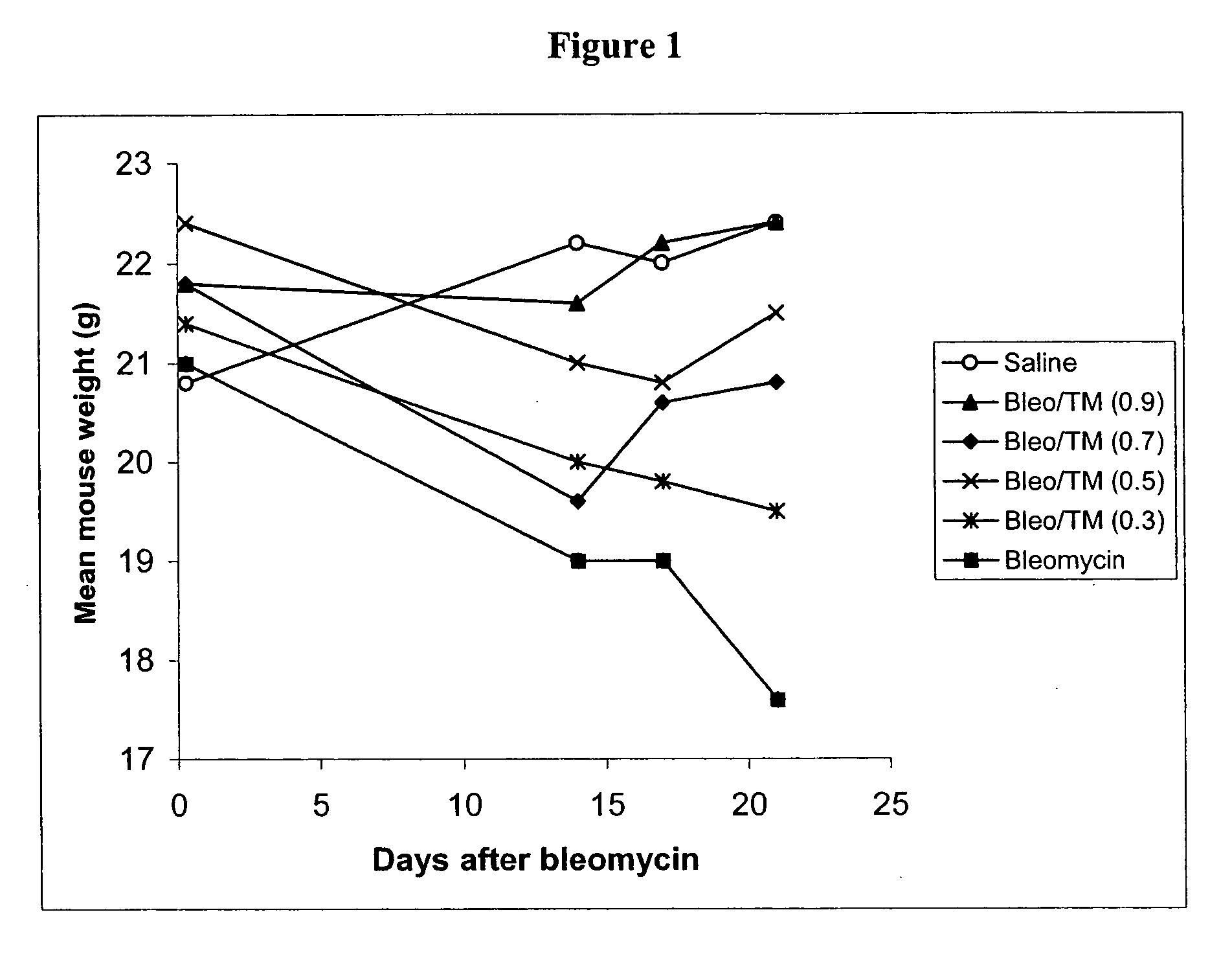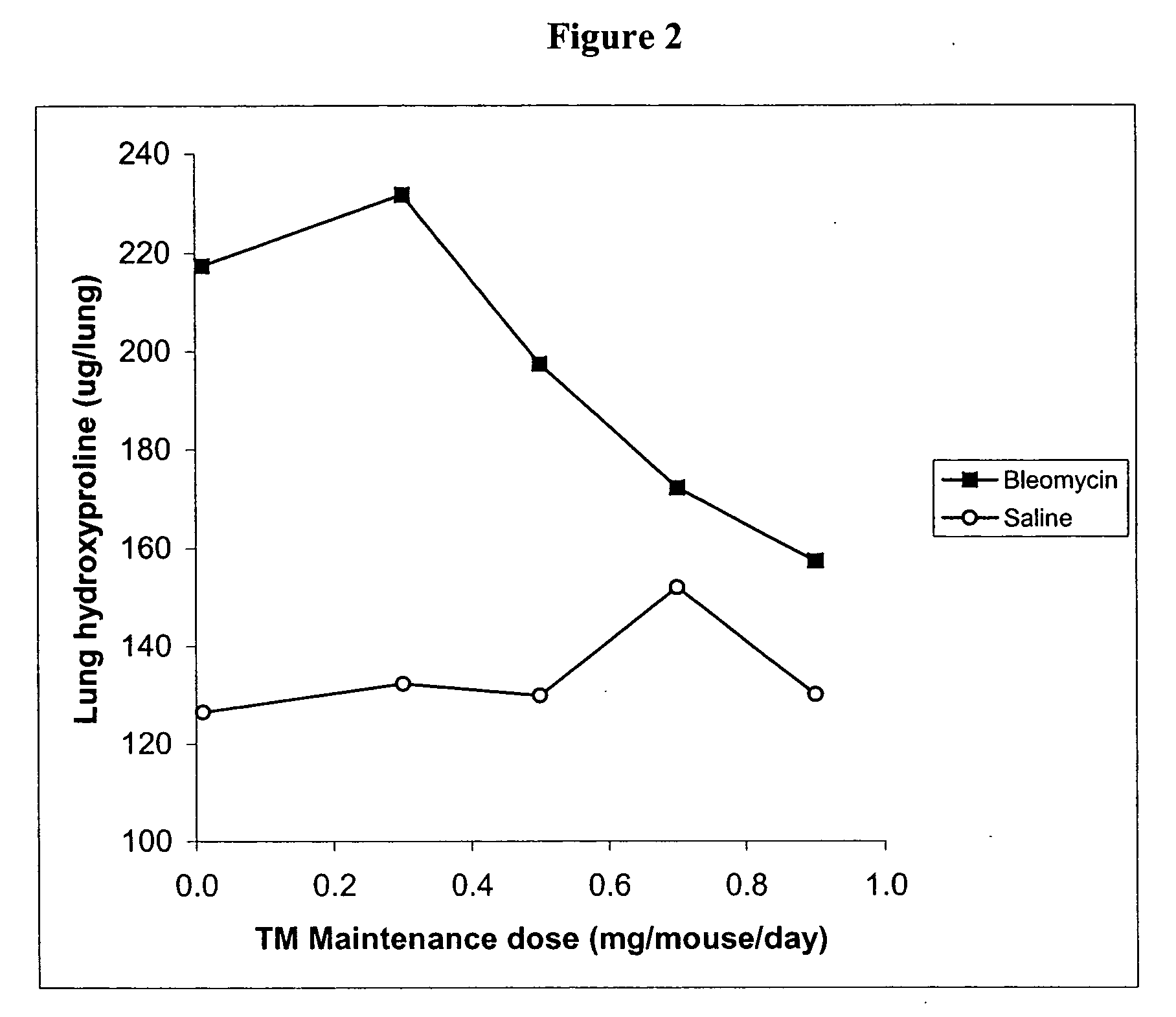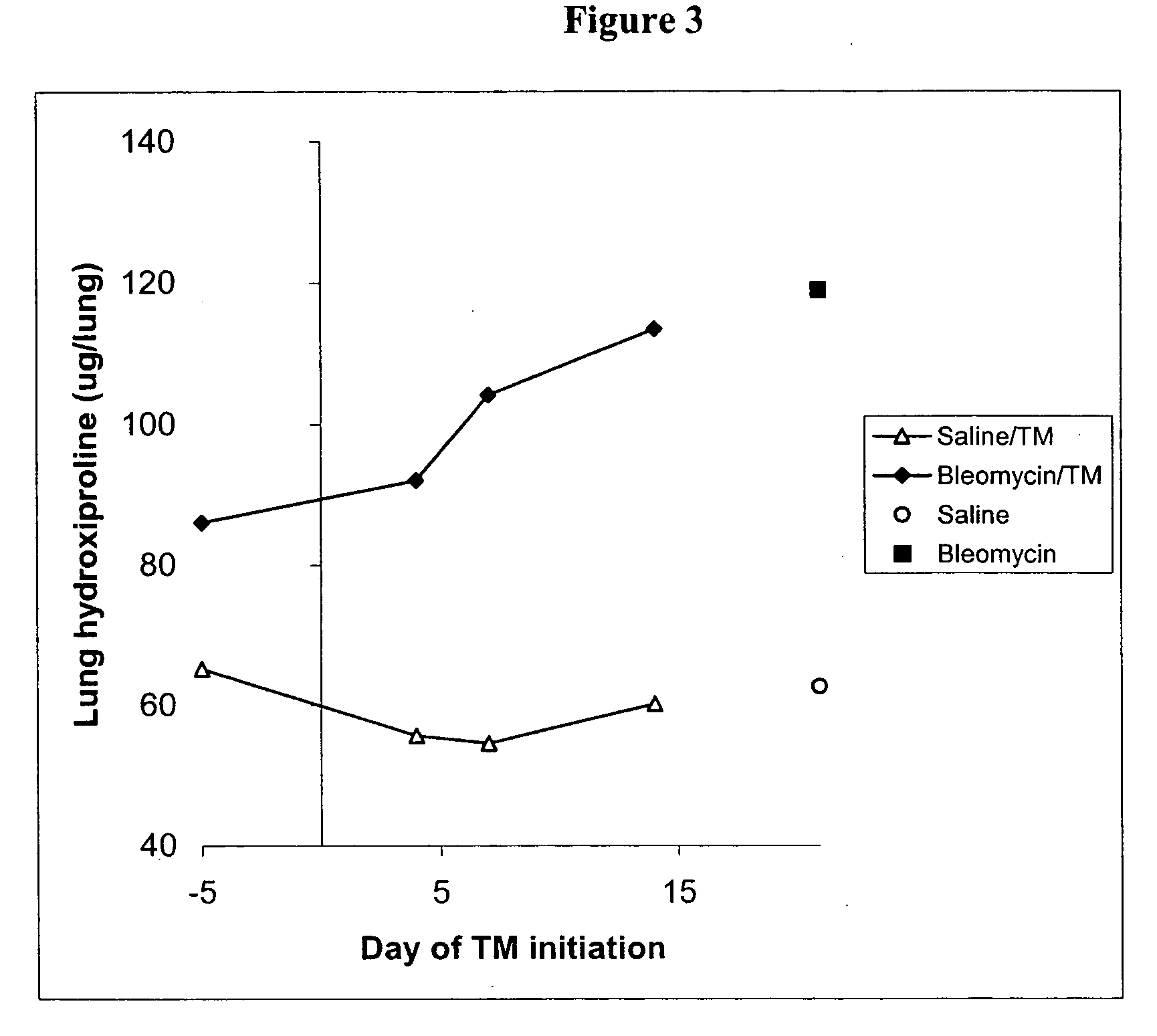Copper lowering treatment of inflammatory and fibrotic diseases
a technology of fibrotic disease and copper, which is applied in the direction of biocide, drug composition, urinary disorder, etc., can solve the problems of high risk of interstitial pulmonary fibrosis, high risk of stomach bleeding with little warning, and the patient's death, so as to reduce the level of at least one inflammatory cytokine in the patient and lower the levels of the above cytokin
- Summary
- Abstract
- Description
- Claims
- Application Information
AI Technical Summary
Benefits of technology
Problems solved by technology
Method used
Image
Examples
example 1
Treatment of Pulmonary Fibrosis in the Bleomycin Mouse Model
[0196] Several experiments were carried out in the bleomycin mouse model of pulmonary fibrosis (Experiment 1: Prophylaxis of TM Experiment; Experiment 2: Dose Response; and Experiment 3: Effect of TM as prophylaxis and treatment).
[0197] In the bleomycin mouse model, which is known to be dependent upon the TGFβ pathway, the intratracheal administration of bleomycin leads to the development of severe lung inflammation followed by fibrosis in 2-3 weeks, at which time the mice are sacrificed. Fibrosis is quantified in lung tissue by measuring hydroxyproline, a key component of the collagen that is deposited in fibrotic lung.
[0198] The bleomycin control animals showed high levels of hydroxyproline, and severe histological inflammatory and fibrotic changes involving whole lobes, while the TM treated bleomycin mice showed no increase in hydroxyproline, and only small patches of inflammatory foci. These results are highly signif...
example 2
Inhibition of TGFβ, and TNFα by Tetrathiomolybdate in the Bleomycin Model of Pulmonary Fibrosis
[0224] This example examines the mechanisms by which TM inhibits fibrosis in the bleomycin mouse model. This example, and the experiments described herein, focus on evaluating the possible inhibition by TM of the action of TGFβ, and TNFα, which have been shown to be important in the pathogenesis of fibrosis in the bleomycin model
A. Methods
[0225] Mice. Female CBA / J mice at 8-10 weeks old, were from the Jackson Laboratories (Bar Harbor, Me.). At the start of the experiments, the mice weighed between 20-25 g.
[0226] Bleomycin treatment. Briefly, bleomycin was administrated on day 0 by means of endotracheal instillation through the oral cavity after exposing the mouse's airway by pulling the tongue. Each mouse received 0.001 units / gm body wt of bleomycin (Bristol-Myers, Evansville, Ind.) in 30 μl sterile saline solution. Control mice were administrated an equal volume of sterile saline sol...
example 3
Treatment of Chronic Pulmonary Fibrosis Clinical Trial (Treatment Protocol)
[0248] A protocol is designed to treat patients with chronic pulmonary fibrosis. The initial protocol is a phase I / II trial of TM treatment in patients with usual interstitial pneumonia refractory to previous therapy.
[0249] Idiopathic interstitial pneumonias (IIP) are part of a group a diffuse parenchymal diseases including usual interstitial pneumonia (UIP / IPF), respiratory bronchiolitis interstitial lung disease, cryptogenic organizing pneumonia, alveolar macrophage pneumonia, acute interstitial pneumonia, lymphocytic interstitial pneumonia and nonspecific interstitial pneumonia. Usual interstitial pneumonia (also referred to as idiopathic pulmonary fibrosis, IPF) is the most common type of IIP and is associated with the worst prognosis. The median survival for patients with (UIP) is 2-4 years from the time of diagnosis. UIP typically affects people 40 and 70 years of age with over two-thirds being over t...
PUM
 Login to View More
Login to View More Abstract
Description
Claims
Application Information
 Login to View More
Login to View More - R&D
- Intellectual Property
- Life Sciences
- Materials
- Tech Scout
- Unparalleled Data Quality
- Higher Quality Content
- 60% Fewer Hallucinations
Browse by: Latest US Patents, China's latest patents, Technical Efficacy Thesaurus, Application Domain, Technology Topic, Popular Technical Reports.
© 2025 PatSnap. All rights reserved.Legal|Privacy policy|Modern Slavery Act Transparency Statement|Sitemap|About US| Contact US: help@patsnap.com



